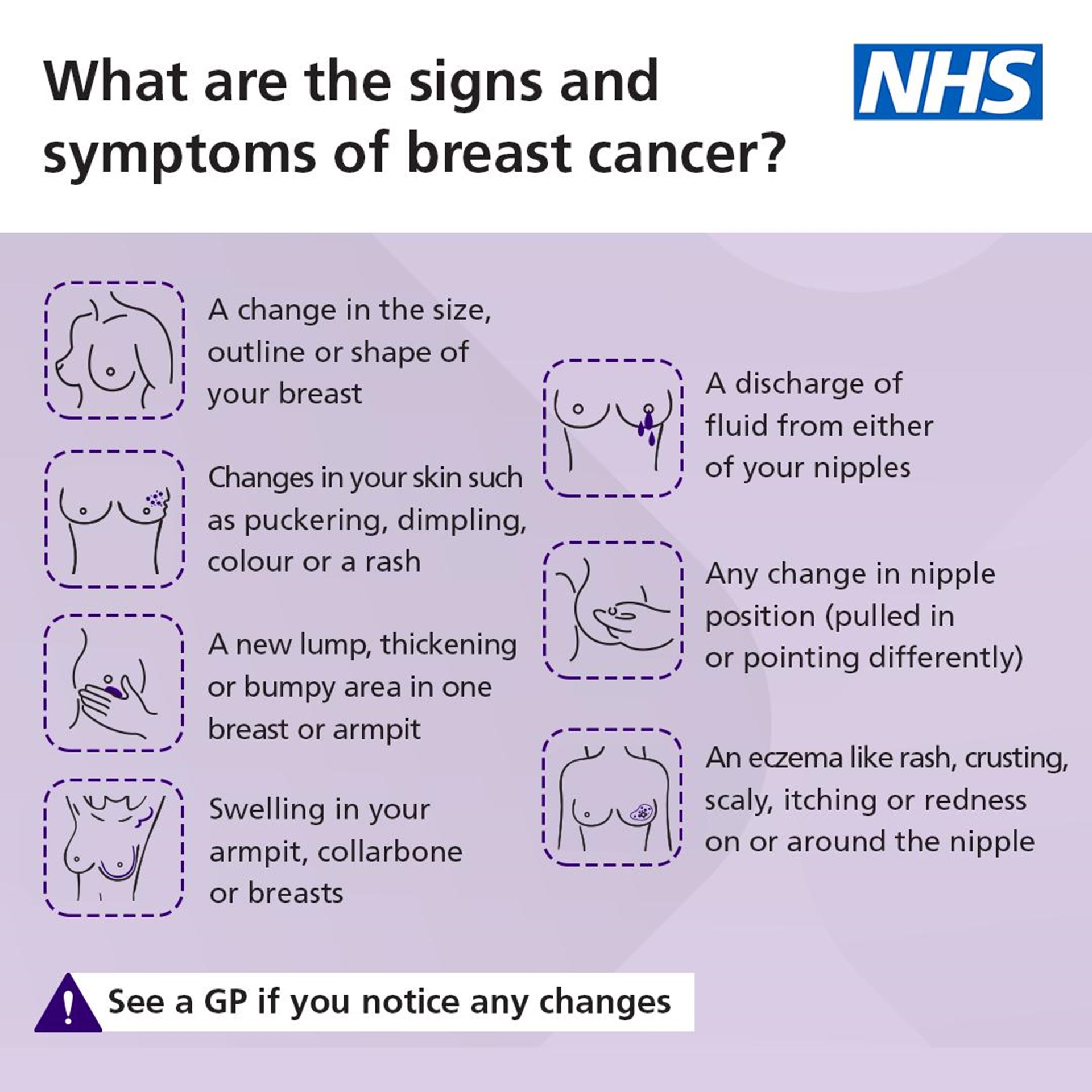
TOUCH | LOOK | CHECK
Breast Cancer awareness month
Published: 20/10/2023
1 in 7 women in the UK are diagnosed with breast cancer in their lifetime.
It is the most common form of cancer.
Yet 1 in 2 women decline their first screening.
Be breast aware
Through life our breasts can change for various reasons such as puberty, pregnancy, breast feeding and the menopause. Get hands on with your own breasts, you should know your normal. Look for changes and lumps, self examinations are a quick way to spot the first signs and catch anything early.
Looking for lumps:
1. Ensure you check at the same time each month (avoiding your period)
2. With your fingertips, walk around your whole breast and under your armpits.
Check your whole breast area, including up to your collarbone (upper chest) and armpits.
9 out of 10 lumps are likely harmless, but it is important you still get these checked.
55,000 women and 400 men a year are diagnosed with breast cancer.
Not only are lumps a tell-tale sign of breast cancer, there are other symptoms to look out for:
- A change to the skin, such as puckering or dimpling
- A change in the colour of the breast – the breast may look red or inflamed
- A nipple change, for example it has become pulled in (inverted)
- Rash or crusting around the nipple
- Unusual liquid (discharge) from either nipple
- Changes in size or shape of the breast
On its own, pain in your breasts is not usually a sign of breast cancer. But look out for pain in your breast or armpit that’s there all or almost all the time.
Although rare, men can get breast cancer. The most common symptom of breast cancer in men is a lump in the chest area.

If you notice any changes, contact your GP, it may be nothing, but it could be something.
A consultation may take place either over the phone or in person. After speaking or seeing you, they will decide if:
- There’s no need for further investigation
- Ask to see you again after a short time
- Refer you to a breast clinic
Being referred to a breast clinic does not mean you have breast cancer, they may just want to further investigate.
If you would like further information or to reach out for support, take a look at these resources:
Breast Cancer Now | The research and support charity
Macmillan Cancer Support | The UK's leading cancer care charity
Against Breast Cancer | Breast Cancer Research Charity
